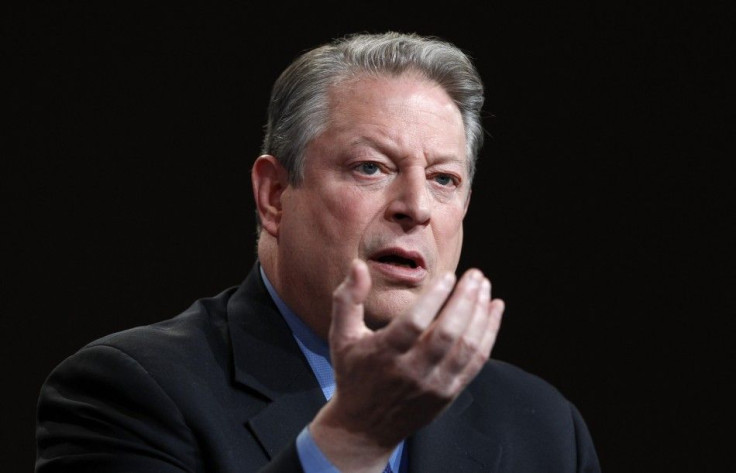A Decade Too Late, Al Gore Calls For End To US Electoral College

In one of the less surprising developments of the week, it turns out Al Gore is not a big fan of the U.S. electoral college.
During Current TV's coverage of the Republican National Convention's closing night, the former vice president and Democratic nominee said it is "time to change" the current system.
"It's always tough to amend the Constitution and risky to do so, but there is a very interesting movement under way that takes it state by state, that may really have a chance of succeeding," Gore said. "I hope it does."
Gore infamously lost the 2000 presidential election despite winning the popular vote, edging President George W. Bush in overall votes but losing Florida by a razor-thin margin that is contested to this day.
A quick primer on how the current electoral college system works: each state awards a certain number of electoral votes to the candidate who wins that state's popular vote. The more populous states award more votes -- reliably Republican Texas and traditionally Democratic California are the largest two -- and whichever candidate gets to or surpasses 270 votes wins.
In commentary for his cable channel, Current TV, Gore said that the electoral college system allows candidates to pay less attention to states that seem certain to break a certain way (Massachusetts, for example, is a sure thing for Democrats, while Kansas is immutably red).
"Even after the 2000 election, I supported the idea of the Electoral College because the logic is, it knits the country together, prevents regional conflicts, and it goes back through our history with some legitimate concerns," he said. "But since, I've given a lot of thought to it and I've seen how these states are just written off and ignored and people are effectively disenfranchised in the presidential race."
There is some merit to Gore's point. Certain states are such a lock to go to one party that candidates scarcely bother campaigning there -- Massachusetts and Maryland are virtual locks to go blue, for example, while Democrats would be wasting their time in the perpetual redlands of Kansas or Oklahoma.
That means that candidates spend a disproportionate amount of time campaigning in a handful of swing states. Florida, Ohio and Pennsylvania are typically the most contested, given their large electoral vote shares.
Shifting demographic trends have been reshaping the process, as the Obama campaign pursues typically Republican states, like Nevada, New Mexico and North Carolina, that it won last time around.
A recent New York Times profile described Gore as relatively at peace with his stinging 2000 loss. He has separated from his wife Tipper and immersed himself in environmental advocacy.
"He doesn't rant about the way he would have run the country," an anonymous friend told the Times. "He doesn't let his anger take priority over his policy obsessions, where he still believes he can make a difference."
© Copyright IBTimes 2024. All rights reserved.





















